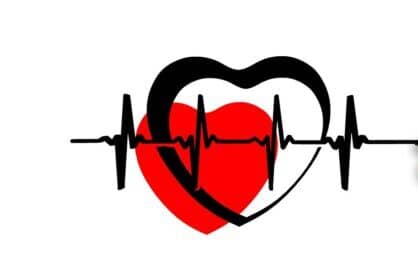Table of Contents

Comprehensive Guide to Women's Health
Women’s health is a broad and multifaceted subject that encompasses a variety of critical aspects, from reproductive health to mental well-being. Here, we delve into key topics such as pregnancy tips, diet and exercise, menopause, mental health and anxiety, breast cancer, urinary tract infections (UTIs), and heart disease.

Pregnancy Tips
Pregnancy is a transformative time in a woman’s life. Here are some essential tips for a healthy
pregnancy:
Regular Prenatal Care: Ensure regular check-ups with your healthcare provider to monitor the health of both mother and baby.
Healthy Diet: Focus on a balanced diet rich in fruits, vegetables, whole grains, and lean proteins. Avoid raw or undercooked foods, and limit caffeine and sugary drinks.
Hydration: Drink plenty of water to stay hydrated, which aids in nutrient absorption and helps prevent common pregnancy issues like constipation and swelling.
Exercise: Engage in moderate exercise like walking, swimming, or prenatal yoga, which can help with mood, energy levels, and overall health. Always consult your doctor before starting any exercise regimen.

Diet and Exercise
Diet and Exercise are vital for maintaining overall .women’s health For women, specific nutritional
needs may vary based on life stages:
Calcium and Vitamin D: Important for bone health, particularly during adolescence, pregnancy, and menopause. Include dairy products, leafy greens, and fortified foods in your diet.
Iron: Essential for preventing anemia, especially during menstruation and pregnancy. Good sources include lean meats, beans, and fortified cereals.
Omega-3 Fatty Acids: Beneficial for heart health and cognitive function. Found in fish, flaxseeds, and walnuts.
Exercise recommendations include:
Cardio: Aim for at least 150 minutes of moderate aerobic activity or 75 minutes of vigorous activity per week.
Strength Training: Incorporate muscle-strengthening activities at least twice a week.
Flexibility and Balance: Activities like yoga and Pilates can improve flexibility, balance, and overall well-being.

Menopause
Menopause marks the end of menstrual cycles, typically occurring in women in their late 40s or early
50s. Common symptoms include hot flashes, night sweats, mood swings, and vaginal dryness. Tips for
managing menopause include:
Healthy Diet: Focus on a diet rich in calcium and vitamin D to support bone health.
Regular Exercise: Helps maintain a healthy weight, improves mood, and boosts overall women’s health.
Hormone Replacement Therapy (HRT): Consult your doctor to discuss whether HRT is suitable for managing severe symptoms.
Stress Reduction: Techniques like meditation, deep breathing, and yoga can help manage stress and improve overall well-being

Mental Health and Anxiety
Mental Health and Anxiety is a crucial aspect of overall women’s health. Women may be
particularly susceptible to conditions like anxiety and depression due to hormonal fluctuations and
societal pressures. Key strategies for maintaining mental health include:
Seeking Support: Talk to friends, family, or a mental health professional if you’re feeling overwhelmed.
Self-Care: Engage in activities that bring you joy and relaxation, such as reading, hobbies, or spending time in nature.
Healthy Lifestyle: Regular exercise, a balanced diet, and sufficient sleep can significantly impact mental health.
Mindfulness and Meditation: These practices can help reduce stress and anxiety, promoting a sense of calm and focus

Breast Cancer
Breast cancer is one of the most common cancers affecting women’s health. Early detection is critical
for successful treatment. Tips for breast cancer awareness include:
Regular Screenings: Mammograms and clinical breast exams are essential for early detection.
Self-Exams: Perform regular breast self-exams to detect any unusual changes.
Healthy Lifestyle: Maintain a healthy weight, exercise regularly, and limit alcohol consumption to reduce risk.
Know Your Family History: Discuss your family history of breast cancer with your doctor to assess your risk and determine appropriate screening measures.

UTIs
Urinary tract infections (UTIs) are common in women and can cause discomfort and pain. Tips for
preventing UTIs include:
Hydration: Drink plenty of water to help flush bacteria from the urinary tract.
Hygiene: Wipe from front to back after using the toilet and urinate after sexual activity to reduce the risk of infection.
Avoid Irritants: Steer clear of harsh soaps, douches, and feminine hygiene sprays that can irritate the urinary tract.

Heart Disease
Heart disease is a leading cause of death among women. Key strategies for maintaining heart health
include:
Healthy Diet: Focus on a diet rich in fruits, vegetables, whole grains, lean proteins, and healthy fats.
Regular Exercise: Engage in at least 150 minutes of moderate aerobic activity per week.
Avoid Smoking: If you smoke, seek help to quit, as smoking significantly increases the risk of heart disease.
Manage Stress: Chronic stress can contribute to heart disease, so incorporate stress-reducing activities like yoga, meditation, or hobbies into your routine.
